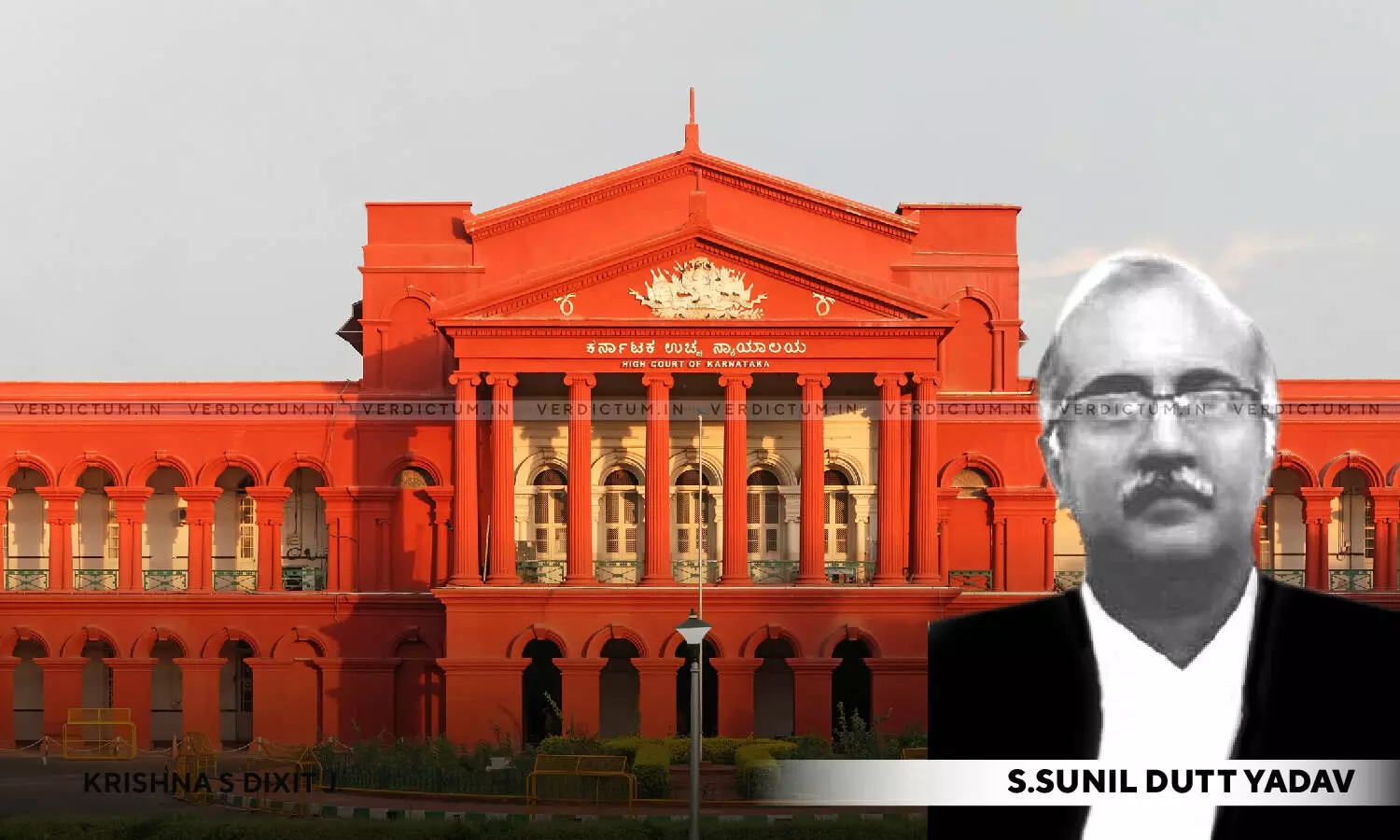
Appellate Authority Under POSH Act Can Pass Interim-Order Of Stay On Final Report Of Internal Committee: Karnataka HC
 |
|The Karnataka High Court has held that an Appellate Authority under POSH Act has implied power to pass interim-order of stay on Internal Committee Report.
The Court was considering a Writ-Petition against a final report of the internal committee and the order of transfer.
The single-bench of Justice Sunil Dutt Yadav observed, "The provision under the Act and the Rules does not contain any stipulation regarding granting of interim relief. It must be noticed however that the Act does not expressly prohibit the appellate authority to pass an interim order and once the appellate authority has the power to set aside impugned proceedings, it can be construed that the appellate authority also has implied power to consider passing of interim order of stay as well."
The Petitioner was represented by Advocate Nagaraja Hegde while the Respondents were represented by AGA Navya Shekar.
The Petitioner called in question the correctness of a final report of the internal committee against Sexual Harassment of Women at Workplace and also challenged the order of transfer stated to have been made pursuant to the recommendation of the Committee.
It was the case of the Petitioner that he was appointed as a Finance Officer on contract basis and during the course of his employment, the 2nd Respondent lodged a complaint against him of sexual harassment at work place, which according to him is a false complaint. It was submitted that the internal committee made out its recommendation by way of final report and the employer has passed an order of transfer.
The petitioner submitted that in the appeal filed before the Appellate Authority, an application for stay was filed and till date, no orders are passed and the Authority has merely issued notice in the appeal without considering granting an interim order of the impugned proceedings which has caused irreparable loss and injury to the petitioner.
Counsel for the Petitioner submitted that in terms of the provisions under Section 18 of the Sexual Harassment of Women at Workplace (Prevention, Prohibition and Redressal) Act, 2013 and under Rule 11 of the Sexual Harassment of Women at Workplace (Prevention, Prohibition and Redressal) Rules, 2013 (for short 'the Rules') the appellate authority has no power to consider the application for stay.
The Court underscored that contention of the petitioner raised in the form of legal grievance is that, once the appeal is filed, unless the application for stay is considered by the authority, cases where genuine grievance are raised would remain unaddressed till the appeal is decided which may take time with no relief in the interregnum.
The Court stated that there is no expressed bar under the statue that prohibits the appellate authority from passing interim orders.
"When there is no such bar in regard to grant of interim relief under the statute, such power to grant interim relief could be considered," the court observed.
The Court cited Supreme Court ruling in Income Tax Officer, Cannanore vs. M. K Mohammed Kunhi wherein, while dealing with the powers of Income Tax Appellate Tribunal under Section 254 and 255 of Income Tax Act, 1961 in which provision at the relevant point of time, the court had ruled that there was no specific power available to the Income Tax Appellate Tribunal to grant stay against the demand of tax, has held that such power to grant stay was inherent and was capable of being read into the powers of deciding the appeal itself.
Further, the Court added that the principle is that every Court must be deemed to possess by necessary intendment all such powers as are necessary to make its orders effective as embodied in the maxim "ubi aliquid conceditur,conceditur et id sine quo res ipsa esse non potest" and accordingly applied in Apex Court ruling in Smt. Savitri vs. Sri. Govind Singh Rawat while allowing consideration of interim order in an application filed under Section 125 of Cr.P.C. before the Magistrate.
The Court thus held that the appellate authority despite the absence of specific provision for granting of interim order would have the power to consider the interim application.
The writ-petition was accordingly disposed off.
Cause Title: Sri Nagaraj G K vs. Addl. Labour Commissioner NC
Click here to read/ download Order: